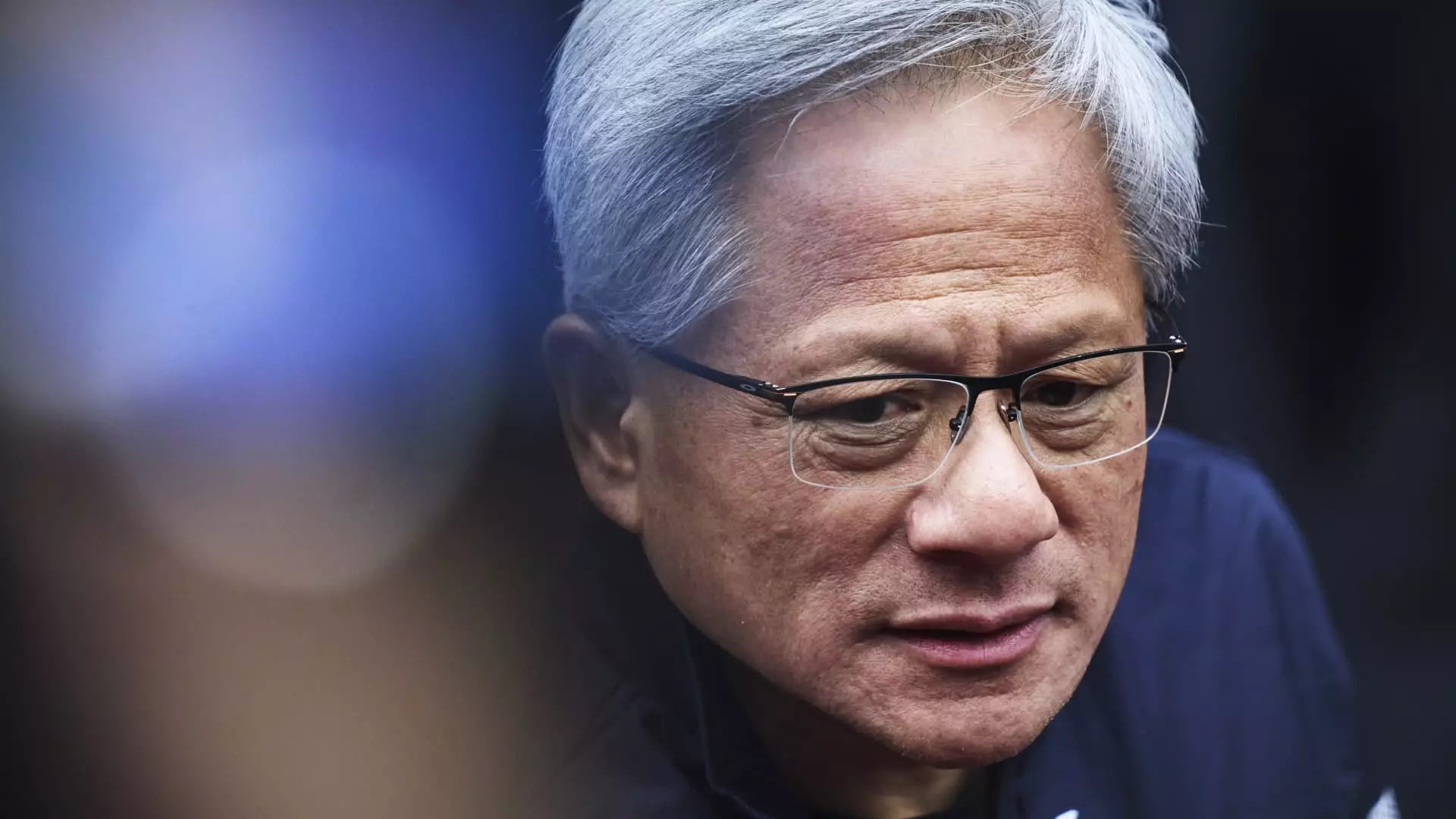On a notable Friday afternoon in Washington D.C., Nvidia’s CEO Jensen Huang is set to engage in high-stakes discussions with President Donald Trump. This meeting marks a significant juncture in technology and government relations, focusing primarily on U.S. artificial intelligence (AI) policy. Such discussions are pivotal not only for Nvidia, which has rapidly ascended to become the third most-valued company in the United States, but also for the evolving landscape of tech regulation and competition on a global scale.
The backdrop of this meeting is crucial; it unfolds after a transformative period in which top-tier technology executives have cultivated closer ties with the Trump administration compared to prior engagements. Unlike his first term, during which tech leaders maintained a cautious distance, Trump’s new term has stirred a more collaborative atmosphere, positioning Huang at the nexus of strategic technological dialogue.
One of the most pressing issues on the agenda seems to be America’s stance on the burgeoning AI competition with nations like China. With companies such as DeepSeek rising within the Chinese tech landscape, the conversation could address how U.S. policy can enhance competitive advantage while managing potential threats. Huang’s input will be critical in shaping these policies, especially as Nvidia faces backlash from global export restrictions, which prevent their cutting-edge AI chips from reaching critical markets like China and Russia.
Given the rapid advancements in AI technology and the corresponding regulatory landscape, any decisions emerging from this meeting could have far-reaching consequences across industries reliant on semiconductor technology. Notably, restrictions imposed during the Biden administration’s final days—including stringent rules that inhibit chip sales overseas—raise questions about the future operational viability of firms like Nvidia and Advanced Micro Devices (AMD).
In tandem with discussions on AI and export restrictions, there is also an expectation that Huang and Trump will explore the revival of the CHIPS Act, an initiative designed to promote domestic chip manufacturing. As U.S. reliance on foreign foundries remains a key concern, particularly regarding suppliers based in Asia such as Taiwan Semiconductor Manufacturing Company (TSMC), revitalizing American chip production is not just a strategic imperative but a national security issue.
The ongoing evaluation of chip export restrictions by the White House adds a layer of urgency to these discussions. With the balance of power precariously tipping between domestic manufacturing capabilities and global dependence, Huang’s insights will be instrumental as the Commerce Department seeks to recalibrate the previous administration’s policies.
Jensen Huang isn’t the only tech executive weaving through the intricate web of politics and policy. Other prominent leaders, including Elon Musk, have successfully positioned themselves as key advisors to the Trump administration, highlighting how financial support can translate into substantial advisory roles. Musk’s active participation in promoting governmental efficiency via the Department of Government Efficiency (DOGE) may serve as a model for Huang in navigating his influence on AI policy.
As tech figures like Jeff Bezos, Tim Cook, Sundar Pichai, Mark Zuckerberg, and Sam Altman have recently demonstrated their willingness to engage with government, it is evident that for Huang, this meeting presents an opportunity not merely to shape Nvidia’s future but to contribute to a broader narrative concerning the role of technology in governance.
As Huang and Trump delve into these multifaceted discussions, the ramifications of their dialogue will extend beyond Nvidia. The outcome could influence regulatory practices, international relations, and the pace of technological innovation in the United States. The coming months will be crucial as both the tech industry and government work to define the boundary between supporting innovation and ensuring national security.
Ultimately, this meeting represents a significant moment for the burgeoning relationship between the U.S. government and the technology sector. As AI continues to reshape economies and societies global-wide, the ways in which leaders like Huang and Trump navigate these complexities will determine not only the fate of companies like Nvidia but also the future landscape of U.S. technological prowess in a competitive global arena.

